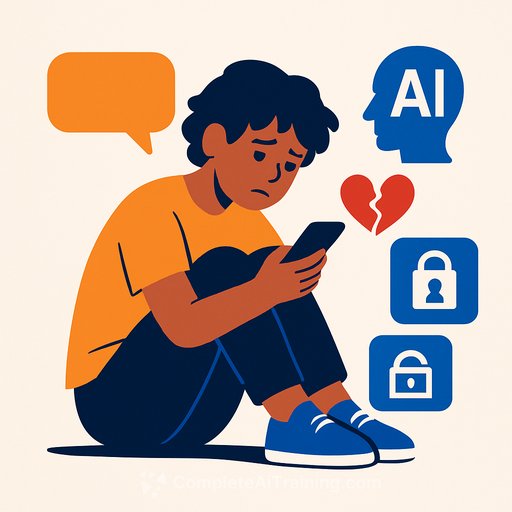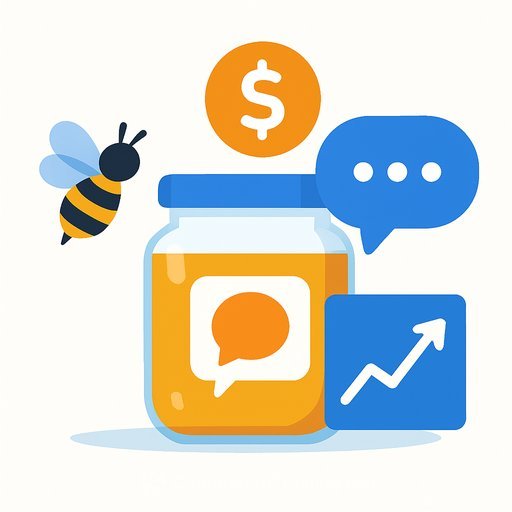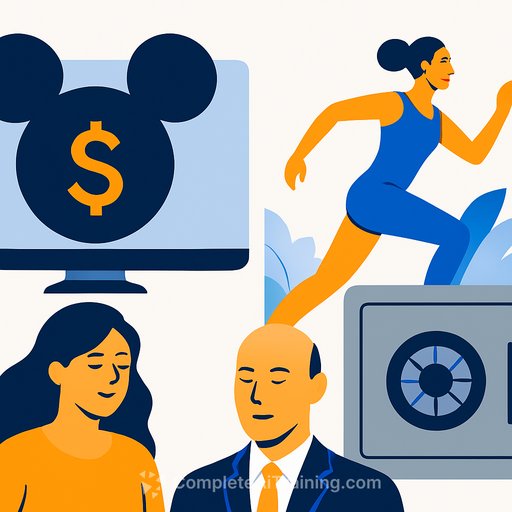AI, Social Media, and Mental Health: What PR and Communications Leaders Need to Know
A leading management and organisational behaviour specialist, Professor Dwayne Devonish, is warning of rising mental health risks tied to heavy use of artificial intelligence (AI) and social media-especially among young adults and teens. Speaking at the Small Business Association's Youth Forum in Barbados, he highlighted three issues every communications leader should take seriously: loneliness, data exposure, and cognitive decline.
His message applies to your teams and your audiences: use AI with intention, protect privacy, and prioritise real human connection.
Loneliness is rising-and technology can make it worse
Devonish pointed to global studies showing increases in isolation among Generation Z and younger cohorts. "Technology, including social media, and this would also include artificial intelligence, can worsen feelings of loneliness… This is only a tool. This is not a real person."
For PR teams, this has two implications: your young audiences may feel more isolated than they appear online, and your own staff can slide into parasocial loops that reduce real collaboration. The U.S. Surgeon General has flagged social disconnection as a public health concern; see the advisory on loneliness and isolation for context. Read more
Data shared with AI can leak-and become a reputational crisis
"Be careful… a lot of the information you put in AI, it's not really private," Devonish said. "Be careful what you tell the AI… Do not in any way believe that it is 100 per cent secure from other public sites."
For communications leaders, this is brand risk. Sensitive drafts, crisis memos, unreleased campaigns, and personal data should never be pasted into public tools. Treat inputs like social posts: assume they could be seen and shared.
Cognitive offloading can dull thinking-and weaken content
Devonish referenced research indicating that people who leaned on AI tools like ChatGPT showed sharp drops in cognitive activity versus those who worked unaided. He warned of long-term impairment and noted work exploring links with conditions such as dementia. WHO overview
The takeaway isn't "don't use AI." It's "don't outsource your thinking." Overuse can flatten originality, reduce editorial judgment, and lead to formulaic content.
What PR leaders should do now
- Set usage guardrails: Timebox AI and social media during deep work blocks (e.g., 25 minutes focus, 5 minutes tools). Default to offline drafting for core ideas.
- Adopt "human-first" creation: Draft or outline first, then use AI to critique, expand, or tighten. "Write with the help of the AI… then challenge the AI," as Devonish advised.
- Create a Red-Amber-Green data policy: Red = never paste (PII, legal, unreleased financials). Amber = mask/anonymise. Green = safe to use.
- Build a review checklist: facts verified, sources cited, bias scan, tone fit, and final human approval.
- Counter isolation on your team: short daily standups, live edit sessions, and regular in-person or video touchpoints.
- Plan for exposure events: crisis templates for AI-related data leaks and clear internal reporting paths.
A practical AI workflow for comms teams
- Brief: Clear objective, audience, and constraints.
- Draft: Human outline or first pass.
- Co-edit with AI: Ask for gaps, counterarguments, and structural improvements-not a full rewrite.
- Challenge: Ask the AI to critique its own suggestions and provide sources.
- Verify: Fact-check, run plagiarism and tone checks, and ensure privacy compliance.
- Approve: Human sign-off before publishing.
Signals to watch in your team
- Heavier reliance on templates and prompts, fewer original angles.
- Slack-only "relationships," fewer live conversations.
- Shorter attention spans in reviews; more errors slipping through.
- Casual handling of sensitive drafts or client data in public tools.
For students and early-career staff
Devonish urged young people to build real relationships, not just digital ones: "Be careful with the length of time that you spend with the artificial intelligence tool. The same way that you cut your time when it comes to social media, that same logic applies with artificial intelligence."
He also shared that he is preparing a student-friendly guide on the psychology of AI, due by December, to help people benefit from the technology while protecting mental health and cognitive strength.
Upskill your comms team-without outsourcing your thinking
If you want structured training that reinforces healthy, high-quality AI use in communications, see this certification pathway: AI Certification for Marketing Specialists.
Your membership also unlocks:






